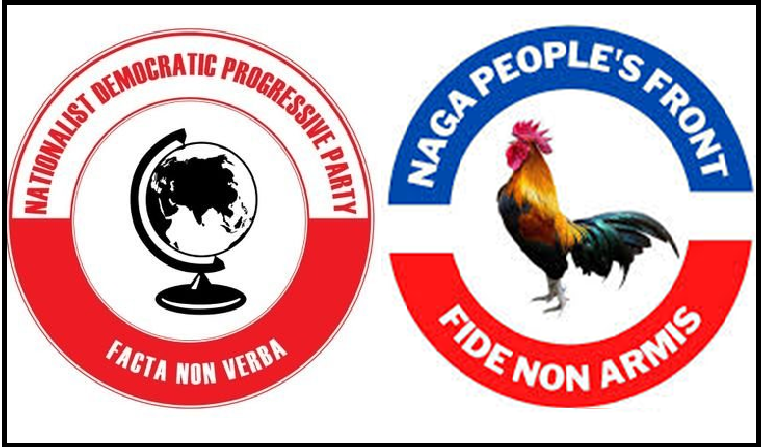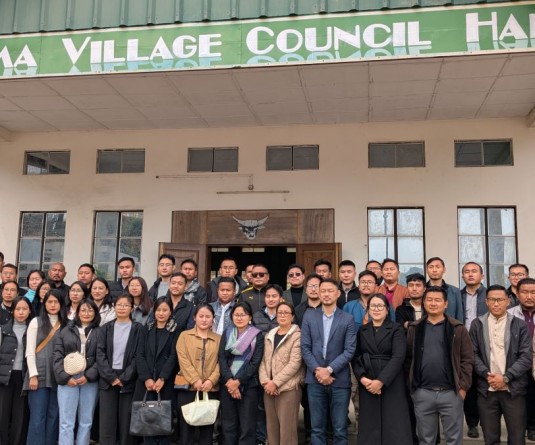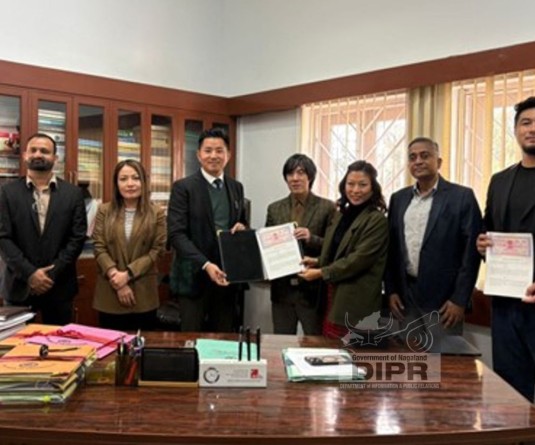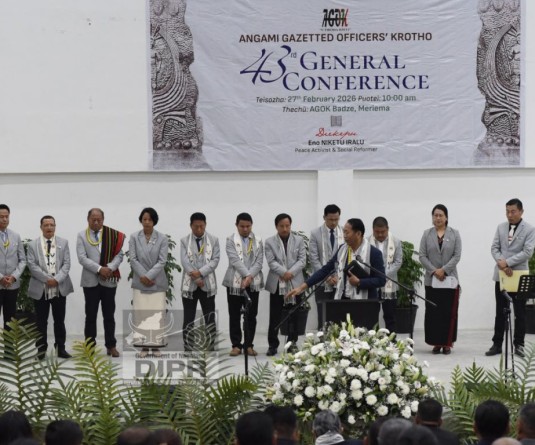English ‘a powerful medium for the exchange of knowledge, culture, and ideas’ says NDPP; English has often helped ‘maintain national coherence where linguistic fault lines have historically threatened unity,’ maintains NPF.

React to Amit Shah’s people who speak English will ‘soon feel ashamed’ comment
Kohima, June 20 (MExN): Reacting strongly to Union Home Minister Amit Shah’s recent comments reportedly suggesting that people who speak English will “soon feel ashamed,” the Nationalist Democratic Progressive Party (NDPP) and the Naga People’s Front (NPF) today issued separate statements affirming English as an essential language for national unity, global engagement, and the aspirations of Naga society.
The NDPP described English as not merely a tool of communication but “a powerful medium for the exchange of knowledge, culture, and ideas,” adding that it has long served as a bridge linking Nagaland to the rest of India and the global community.
“The designation of English as the official language of Nagaland is not recent—it is rooted in our history, where English has played a pivotal role for over a century, particularly in the domains of education, governance, and religion,” the party said.
While underscoring the importance of preserving and promoting indigenous languages as integral to Naga identity, culture, and heritage, the NDPP said it was equally necessary to recognise the value of multilingualism. “Our youth are dynamic, enterprising, and globally engaged. One of the key enablers of their success—within India and across the world—has been their fluency in multiple languages, particularly English.”
The party called for creating inclusive spaces and equal opportunities for all citizens to participate in the nation-building process, reaffirming its commitment to the values of “unity in diversity” and national integration “through mutual respect and understanding.”
Meanwhile, the NPF also expressed “deep concern” over Shah’s remarks made on June 19, calling the statement “unfortunate and disappointing.” The party stated that leaders holding high national office must be mindful of the weight their words carry, as they reflect not only personal opinions but shape national discourse.
“To suggest that speaking English is something to be ashamed of is to overlook the pivotal role that the language has played in uniting our diverse country,” the NPF stated. Given India’s complex linguistic landscape—with 22 officially recognized languages and hundreds of dialects—it said English had functioned as a “neutral, common platform” that has helped people communicate, collaborate, and coexist.
“English has often helped maintain national coherence where linguistic fault lines have historically threatened unity,” the statement noted, adding that English has empowered many from rural and marginalised communities to access knowledge, education, and professional opportunities beyond regional constraints.
The party said that Indian languages and English have coexisted meaningfully, and that “pride in our mother tongues and the practical value of English are not mutually exclusive.”
“We strongly support the promotion and preservation of all Indian languages, including our own native tongues. But this must not come at the cost of dismissing or demeaning another language that has empowered so many,” the NPF said.
Calling on national leaders to embrace the plurality of India, the NPF said: “True national pride lies in our ability to embrace plurality, not impose uniformity. Let us move forward with unity, respect, and understanding—acknowledging the value of every language that contributes to India’s identity, including English.”






